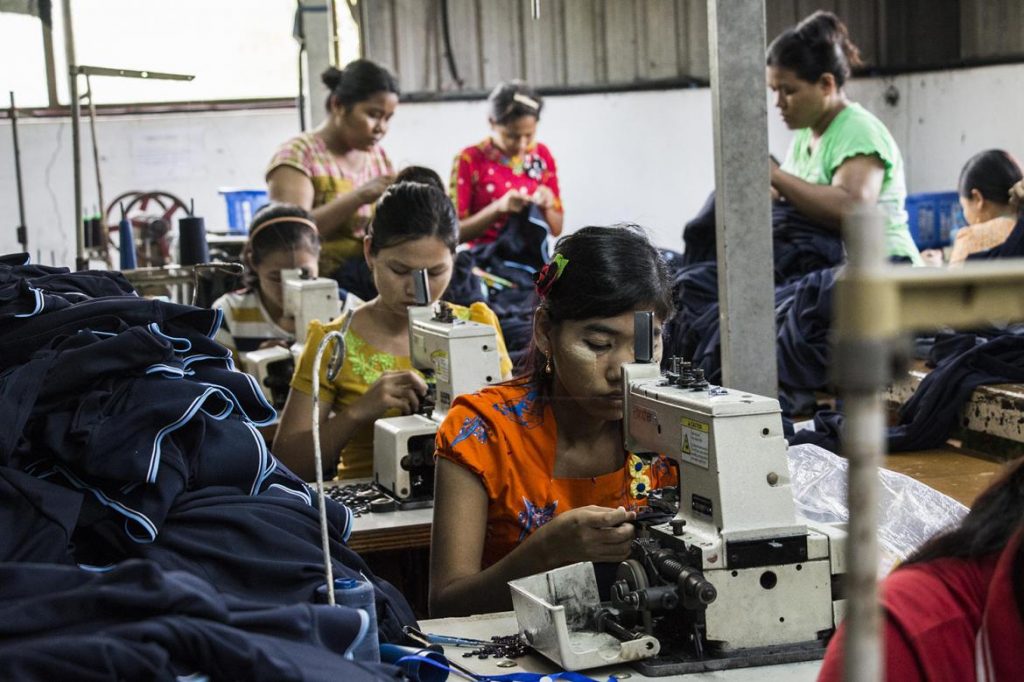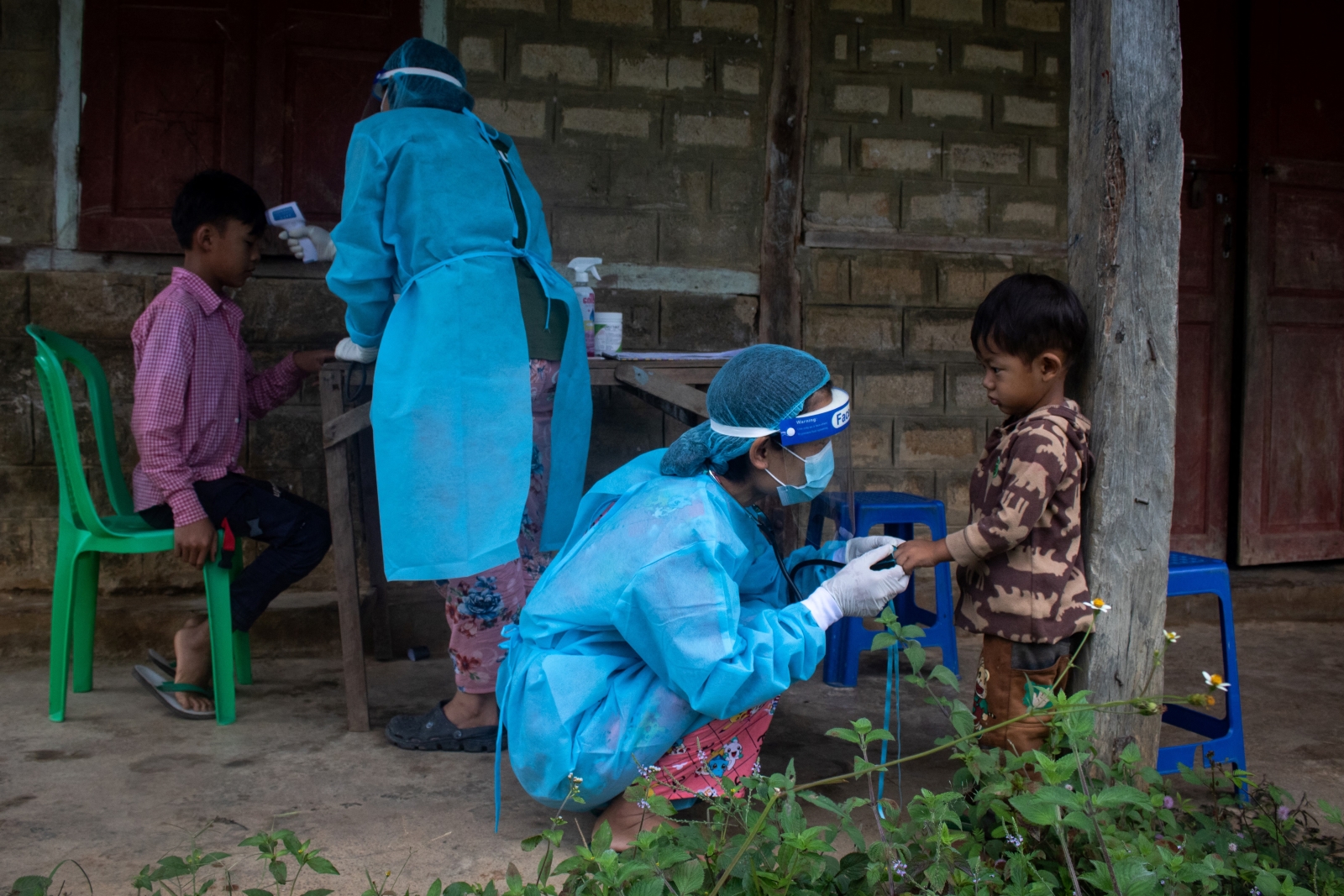By FRONTIER
YANGON —Myanmar will be at risk of losing access to European Union trade privileges worth millions of euros unless it addresses concerns about human rights violations, the EU has warned.
The warning was included in a press release issued at the end of a visit to Myanmar by a monitoring mission from the European Commission and the European External Action Service from October 28 to 31.
It was reported in early October that the commission, which sets trade policy, was considering suspending trade privileges granted under the Generalised System of Preferences in response to a damning UN report about human rights violations in Rakhine, Kachin and Shan states.
The report accused the Tatmadaw of committing the “gravest crimes under international law” and said it had acted with “genocidal intent” against the Rohingya in Rakhine.
Support more independent journalism like this. Sign up to be a Frontier member.
The release quoted Commissioner for Trade, Ms Cecilia Malmstrom, as saying Myanmar was expected to address “the severe shortcomings” that had been highlighted by the mission.
“If they do not act, Myanmar authorities are putting their country’s tariff-free access to the EU market in danger – a scheme which has proved to be vital for the economic and social development of the country, providing thousands of jobs to workers in sectors such as textiles, agriculture and fisheries,” Malmstrom said. “We are committed to helping Myanmar improve the situation and ensure that the principles enshrined in the international conventions to which Myanmar has committed are not undermined,” she said.
The release said that Myanmar must uphold and respect the principles enshrined in 15 UN and International Labour Organization conventions to continue benefitting from duty-free, quota-free access to the EU market through the bloc’s Everything But Arms scheme.
It said the mission’s findings would be analysed as a matter of priority to determine whether to suspend trade privileges, a move that would cripple the garments sector, one of the country’s biggest export revenue earners and employers.
“The EU stands ready to provide necessary support to Myanmar to address the concerns of the international community. Nevertheless, withdrawal of trade preferences is a clear possibility if other channels of cooperation have failed to reach results,” the release said.
During its visit, the EU mission met government ministers, as well members of trade unions, the business community, civil society and representatives of UN agencies, including the ILO.
The issues explored during the mission’s visit included “the continued use of forced labour in parts of the country, in particular by Myanmar’s armed forces, including child recruitment, as well as the need for further reforms regards freedom of association and collective bargaining”.
The release said the trade privileges had made an important contribution to the economy, with preferential exports to the EU rising from €535 million in 2015 to €1.3 billion in 2017.
It said the EU was Myanmar’s third largest export market and accounted for 8.8 percent of total exports in 2017.
Garments accounted for 72.2 percent of exports to the EU in 2017, it said.







